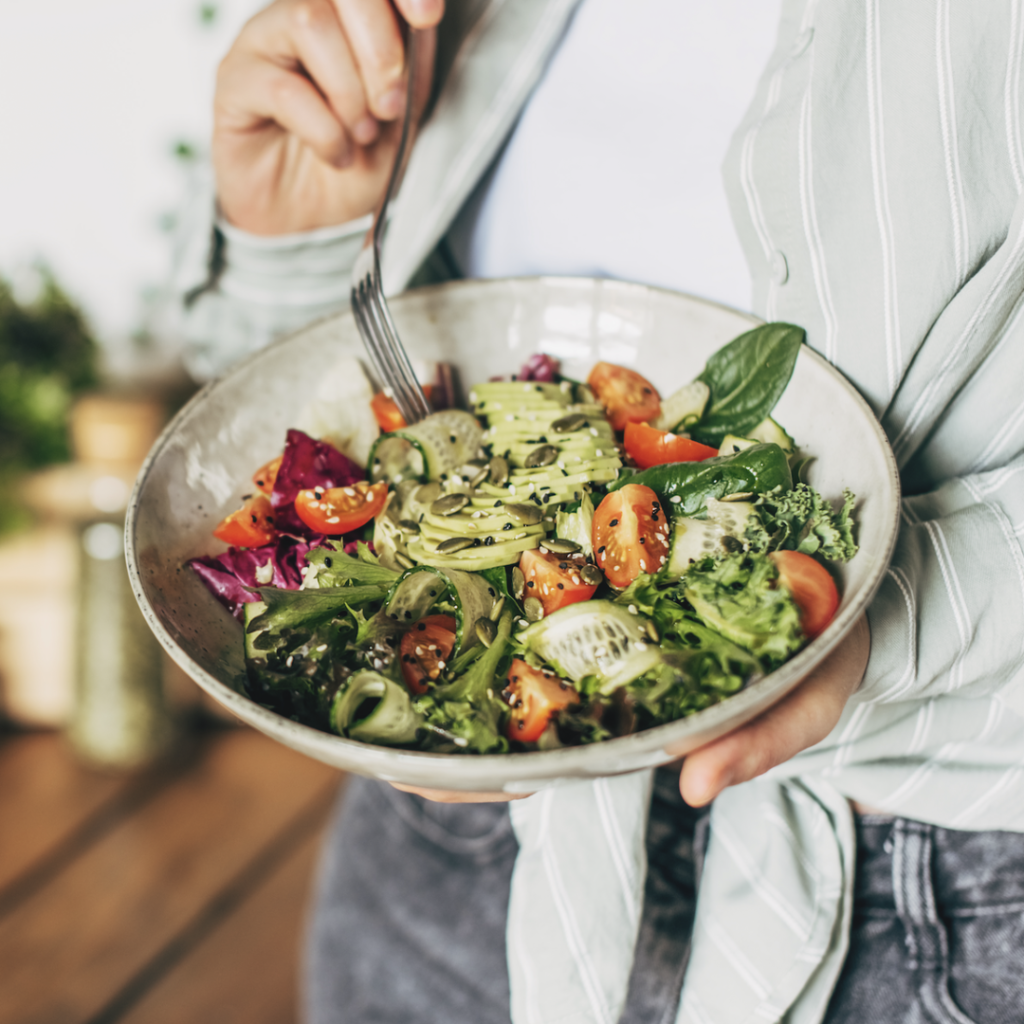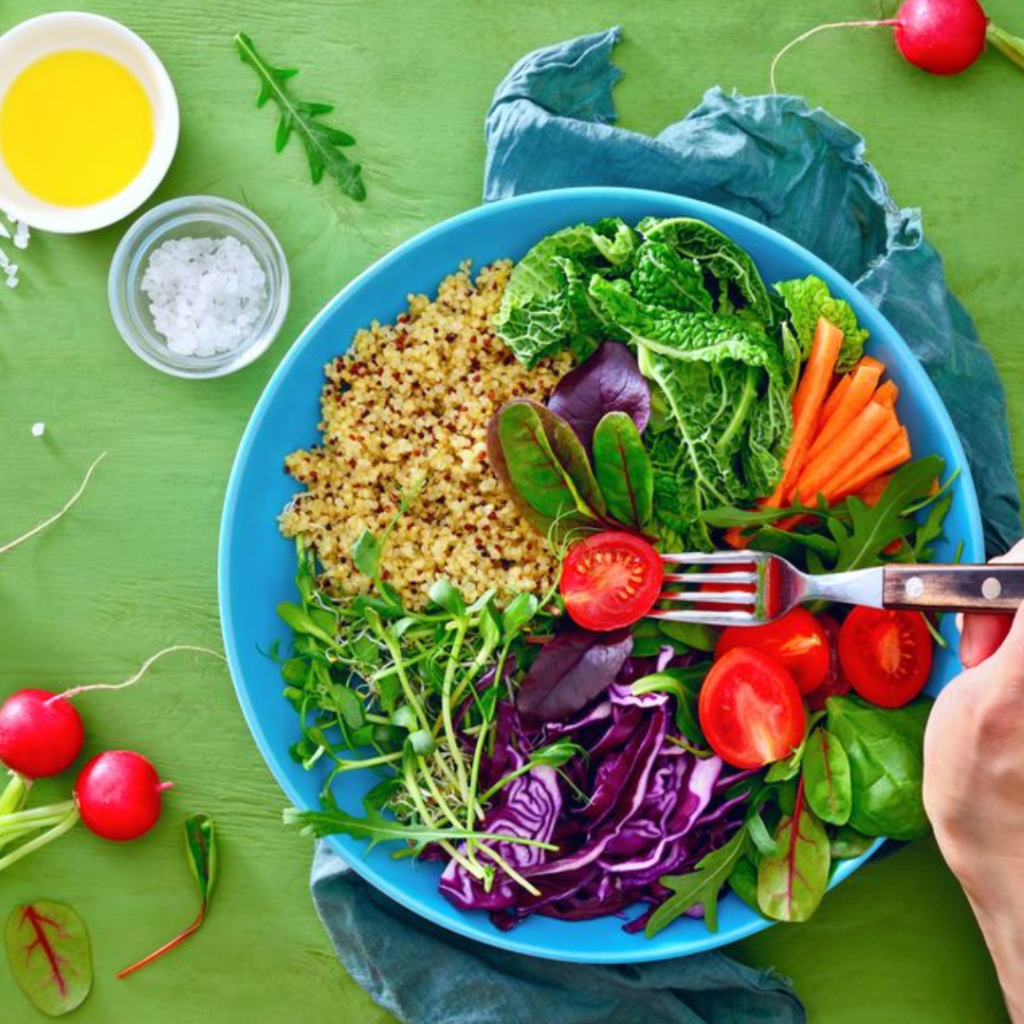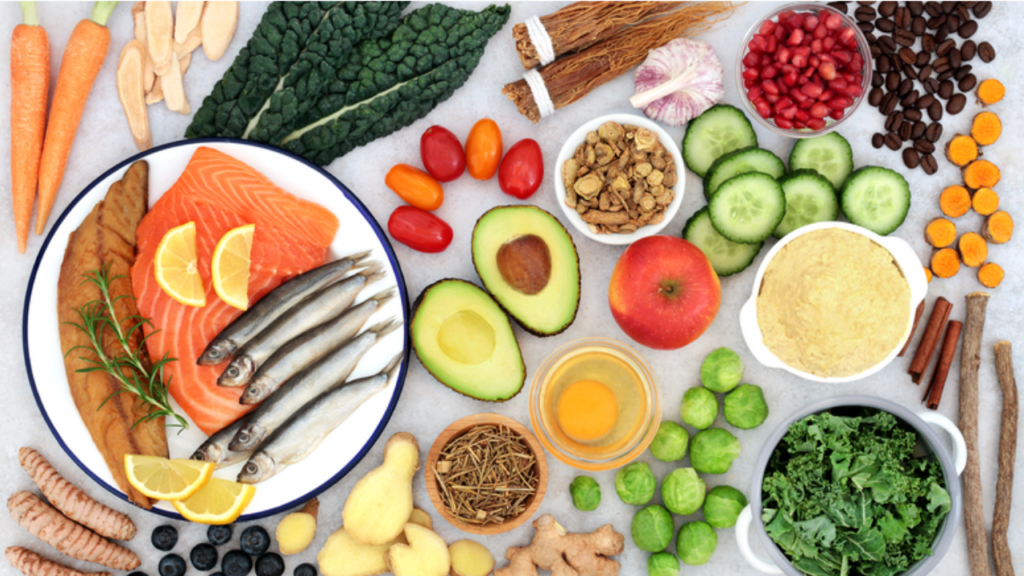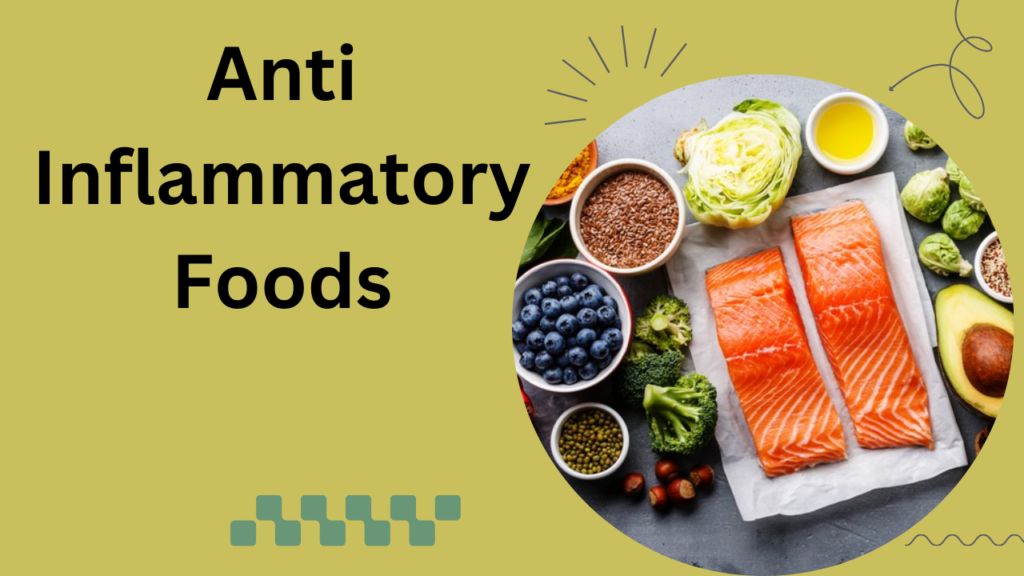Are you looking to soothe inflammation and boost your overall health? Dive into the world of anti-inflammatory foods.
Whether you’re seeking relief from arthritis, wanting radiant skin, or simply aiming for a healthier lifestyle, incorporating these powerful foods into your diet can work wonders.
Let’s explore the top 20 anti-inflammatory foods that can help combat inflammation and promote wellness inside and out.
Top 8 anti inflammatory foods
1. Berries like blueberries, strawberries, and raspberries are packed with antioxidants that fight inflammation and support the immune system.
2. Fatty fish such as salmon, mackerel, and sardines are rich in omega-3 fatty acids known for their anti-inflammatory properties.
3. Leafy greens like kale, spinach, and Swiss chard are abundant in vitamins and minerals that help reduce inflammation in the body.
4. Nuts like almonds, walnuts, and pistachios contain healthy fats and fiber which can lower inflammation levels.
5. Turmeric is a spice renowned for its active compound curcumin, which has potent anti-inflammatory effects when consumed regularly.
6. Green tea is loaded with polyphenols that possess anti-inflammatory properties beneficial for overall health.
7. Avocados offer monounsaturated fats that reduce inflammation while providing essential nutrients like potassium and magnesium.
8. Broccoli is a cruciferous vegetable high in antioxidants and fiber that combat oxidative stress linked to inflammation.
Inflammatory foods to avoid
When it comes to combating inflammation in the body, one of the key steps is to avoid foods that can trigger an inflammatory response. These inflammatory foods can exacerbate conditions like arthritis, skin issues, and other inflammatory-related ailments.
Processed foods high in trans fats and refined sugars are notorious culprits when it comes to triggering inflammation. Foods like fried snacks, sugary treats, and fast food meals should be limited or avoided altogether.
Additionally, certain cooking oils such as vegetable oil and margarine contain high levels of omega-6 fatty acids, which can promote inflammation when consumed excessively.
Opting for healthier alternatives like olive oil or avocado oil can help reduce inflammation in the body.
Furthermore, refined carbohydrates like white bread, pasta, and pastries have been linked to increased levels of inflammatory markers in the body. Choosing whole grains instead can provide more nutrients while reducing inflammation.
By being mindful of your diet and steering clear of these inflammatory foods, you can take proactive steps towards managing inflammation and promoting overall health and well-being.
Anti inflammatory foods list
Looking to reduce inflammation in your body? Including foods that reduce inflammation in your diet can be beneficial. Here is a list of some top anti-inflammatory foods that you can easily add to your meals.
First off, omega-3 fatty acids, which are abundant in fatty fish like salmon, mackerel, and sardines, have potent anti-inflammatory effects.
Next on the list is turmeric, a spice commonly used in Indian cuisine known for its active compound curcumin that helps fight inflammation.
Berries such as blueberries, strawberries, and raspberries are not only delicious but also packed with antioxidants that combat inflammation.
Leafy greens like spinach and kale are excellent sources of vitamins and minerals that can help reduce inflammation in the body.
Nuts like almonds and walnuts contain healthy fats and antioxidants that play a role in reducing inflammation.
By incorporating these anti-inflammatory foods into your diet, you can take proactive steps towards improving your overall health.
Anti inflammatory fruits
When it comes to fighting inflammation, incorporating anti-inflammatory fruits into your diet can be a delicious and effective way to support your overall health.
Fruits such as berries, pineapple, cherries, and oranges are packed with antioxidants and vitamins that help reduce inflammation in the body.
Blueberries are known for their high levels of anthocyanins, which have been shown to decrease inflammation. Adding strawberries to your morning smoothie or snack can also provide a good dose of vitamin C and fiber while helping combat inflammation.
Pineapple contains bromelain, an enzyme with anti-inflammatory properties that can aid in reducing swelling and bruising.
Cherries are another great option due to their high concentration of anthocyanins, which may help alleviate symptoms of inflammatory conditions like arthritis.
Oranges are not only refreshing but also rich in vitamin C, a powerful antioxidant that helps protect cells from damage and reduce inflammation. Including these anti-inflammatory fruits in your daily meals can contribute to better overall health and well-being.
Anti inflammatory foods for skin

When it comes to taking care of your skin, what you eat can play a significant role in maintaining its health and radiance. Including anti-inflammatory foods in your diet can help reduce redness, irritation, and promote a clear complexion.
Berries like blueberries, strawberries, and raspberries are packed with antioxidants that can help fight inflammation and protect the skin from damage caused by free radicals.
Fatty fish such as salmon, mackerel, and sardines are rich in omega-3 fatty acids which have anti-inflammatory properties that can improve skin elasticity and hydration.
Colorful vegetables like spinach, kale, and sweet potatoes are excellent sources of vitamins A and C which can help reduce inflammation in the skin while promoting collagen production for a youthful glow.
Nuts and seeds provide essential nutrients like vitamin E and zinc that support overall skin health by reducing inflammation and supporting healing processes.
Adding these anti-inflammatory foods to your diet along with staying hydrated will not only benefit your skin but also contribute to your overall well-being. Remember, healthy glowing skin starts from within!
What are the 10 worst foods for inflammation
When it comes to inflammation, there are certain foods that can exacerbate the issue and contribute to chronic inflammation in the body. These culprits are best avoided for overall health and well-being.
1. **Sugar**: Excessive consumption of refined sugars like high-fructose corn syrup can lead to increased inflammation levels.
2. **Trans fats**: Found in processed foods, trans fats not only raise bad cholesterol but also trigger inflammation.
3. **Saturated fats**: Foods high in saturated fats such as red meat and full-fat dairy products have been linked to promoting inflammation.
4. **Refined carbohydrates**: White bread, pastries, and sugary cereals spike blood sugar levels quickly, leading to increased inflammatory markers.
5. **Processed meats**: Hot dogs, sausages, and bacon contain additives that may cause inflammation in the body.
6. **Alcohol**: Excessive alcohol consumption can disrupt gut health and increase systemic inflammation.
7. **Artificial additives**: Preservatives, colorings, and flavorings found in many processed foods can trigger an inflammatory response in some individuals.
8. **Excessive salt**: High sodium intake from processed and packaged foods can contribute to water retention and promote inflammation.
9. **MSG (Monosodium glutamate)**: Commonly used as a flavor enhancer in many restaurant dishes and packaged snacks, MSG has been associated with triggering inflammatory responses in some people.
10: **Vegetable oils rich in omega-6 fatty acids**, such as soybean oil or corn oil when consumed excessively compared with omega-3s may promote inflammation
Avoiding these top 10 worst foods for inflammation could help reduce overall levels of chronic inflammation within the body allowing you to feel more energetic every day
How to quickly lower inflammation in the body
One effective way to quickly reduce inflammation in the body is by making dietary changes.
Consuming anti-inflammatory foods can help combat swelling and pain, promoting overall well-being. Incorporating ingredients like turmeric, ginger, and leafy greens into your meals can work wonders in calming inflammation.
Another powerful method to fast-track the reduction of inflammation is through regular exercise. Physical activity not only helps improve circulation but also releases endorphins that act as natural painkillers.
Whether it’s going for a brisk walk or practicing yoga, staying active is key in managing inflammation levels.
Additionally, getting an adequate amount of restorative sleep plays a crucial role in reducing inflammation rapidly.
Sleep allows the body to repair and regenerate cells, aiding in the healing process from within. Prioritizing quality sleep each night can significantly impact how your body responds to inflammatory triggers.
By combining these lifestyle adjustments with mindfulness practices like meditation or deep breathing exercises, you can create a holistic approach to swiftly decrease inflammation throughout your body.
Anti inflammatory foods for arthritis

Arthritis can cause inflammation and pain in the joints, making everyday activities challenging. Including anti-inflammatory foods in your diet may help alleviate symptoms and improve overall joint health.
Turmeric, known for its active compound curcumin, has powerful anti-inflammatory properties that can benefit those with arthritis. Adding turmeric to dishes or consuming it as a supplement may provide relief.
Fatty fish like salmon, mackerel, and sardines are rich in omega-3 fatty acids, which have been shown to reduce inflammation in the body. Incorporating these fish into your meals regularly can potentially ease arthritis discomfort.
Leafy greens such as spinach, kale, and collard greens are packed with antioxidants and nutrients that combat inflammation. These vegetables are versatile additions to salads, smoothies, or stir-fries for a healthy boost.
Berries like strawberries, blueberries, and raspberries contain high levels of antioxidants that help fight inflammation. Enjoying these colorful fruits as snacks or adding them to yogurt or oatmeal can be a delicious way to support joint health.
By incorporating these anti-inflammatory foods into your daily diet regimen alongside medical treatment and regular exercise, you may experience improved mobility and reduced pain associated with arthritis symptoms.
Conclusion
As we wrap up our exploration of anti-inflammatory foods, it’s clear that incorporating these nutrient-rich options into your diet can have a significant impact on reducing inflammation in the body.
From vibrant fruits to leafy greens and omega-3 fatty acids, there are plenty of delicious and wholesome choices available to support your health.
Remember, making small changes like swapping out processed foods for whole food alternatives can make a big difference in how you feel. Experiment with different recipes and ingredients to find what works best for you and your taste preferences.
It’s crucial to implement dietary adjustments gradually and consistently.Rome wasn’t built in a day, and neither is long-lasting health. By prioritizing anti-inflammatory foods and making mindful choices, you’re investing in your well-being for the long haul.
So whether you’re dealing with arthritis, skin issues, or simply want to boost your overall health, choosing anti-inflammatory foods is a powerful step towards feeling your best self. Embrace the journey towards wellness one delicious bite at a time!
What foods clear up inflammation?
When it comes to clearing up inflammation in the body, incorporating certain foods into your diet can make a significant difference.
Fatty fish like salmon, mackerel, and sardines are rich in omega-3 fatty acids, known for their anti-inflammatory properties. Adding these to your meals a few times a week can help reduce inflammation.
Berries such as blueberries, strawberries, and cherries are packed with antioxidants that combat oxidative stress and inflammation. They make delicious additions to smoothies or yogurt bowls.
Leafy greens like spinach, kale, and Swiss chard are excellent sources of vitamins and minerals that support overall health and fight inflammation at the cellular level.
Turmeric is a spice often used in curry dishes that contains curcumin – a potent anti-inflammatory compound. Consider adding turmeric to soups or stir-fries for an extra health boost.
By incorporating these foods into your daily meals, you can help clear up inflammation naturally and promote overall well-being.
What are the top 10 inflammatory foods?
When it comes to inflammatory foods, there are some common culprits that can exacerbate inflammation in the body.
1. **Sugar**: Excessive consumption of refined sugars can lead to increased inflammation levels.
2. **Trans fats**: Found in processed foods and fried items, trans fats promote inflammation and harm overall health.
3. **Processed meats**: High in saturated fats and additives, processed meats can trigger an inflammatory response in the body.
4. **Artificial additives**: Preservatives, artificial colors, and flavors found in many packaged foods can contribute to inflammation.
5. **Refined carbohydrates**: Foods like white bread, pasta, and pastries spike blood sugar levels, leading to inflammation.
6. **Excessive alcohol**: Alcohol consumption in large amounts can increase gut permeability and trigger inflammation.
7. **Saturated fats**: Foods high in saturated fats like red meat and full-fat dairy products may promote inflammation when consumed excessively.
8. **Margarine**: Trans fat-filled margarine is a known inflammatory agent due to its unhealthy fat content.
9. **Fried foods:** Deep-fried snacks are not only high in unhealthy fats but also contain harmful compounds that could worsen inflammation levels.
10: **Artificial sweeteners:** While marketed as a healthier alternative to sugar,
artificial sweeteners have been linked to negative effects on gut health leading
to increased inflammation.
By being mindful of these top inflammatory foods and making healthier choices,
you can help reduce your body’s overall level of inflammation for better well-being.
What reduces inflammation the fastest?
When it comes to reducing inflammation quickly, incorporating anti-inflammatory foods into your diet can make a significant difference. Foods like fatty fish such as salmon or mackerel are rich in omega-3 fatty acids which have been shown to help reduce inflammation in the body.
Turmeric, a spice commonly used in curry dishes, contains curcumin, known for its powerful anti-inflammatory properties. Adding turmeric to your meals or consuming it as a supplement can aid in reducing inflammation.
Leafy green vegetables like spinach and kale are packed with antioxidants that can combat oxidative stress and lower inflammation levels. Berries such as blueberries and strawberries are also high in antioxidants, making them great choices for fighting inflammation.
Incorporating these foods into your daily meals along with staying hydrated and getting enough rest can help you reduce inflammation faster and promote overall well-being.

What can I drink to reduce inflammation?
When it comes to reducing inflammation in the body, incorporating anti-inflammatory foods and drinks into your diet is key. In addition to the top 20 anti-inflammatory foods mentioned earlier, there are also beverages that can help combat inflammation.
Green tea is known for its powerful antioxidants that have anti-inflammatory properties. Turmeric tea, made from the potent spice turmeric, is another excellent option due to its active compound curcumin, which has been shown to reduce inflammation.
Other drinks like ginger tea and tart cherry juice have also been linked to lower levels of inflammation in the body. Staying hydrated with plenty of water throughout the day can further support overall health and potentially reduce inflammation.
By focusing on a diet rich in anti-inflammatory foods and incorporating these beneficial drinks into your daily routine, you can take proactive steps towards managing and reducing inflammation naturally.
To ensure that these dietary adjustments are beneficial to you, keep in mind that consistency is essential.Here’s to better health through mindful food choices.

